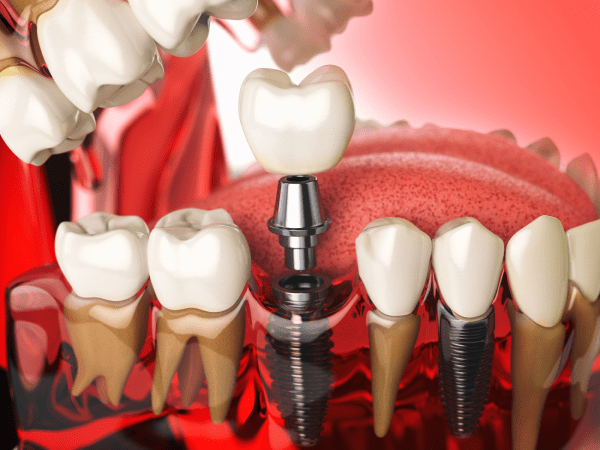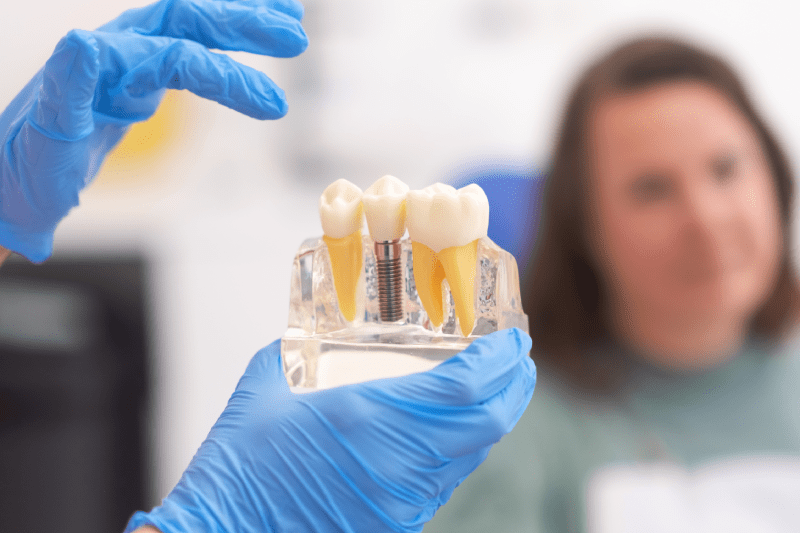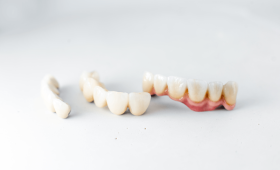Which Implant is the Best for Teeth and Dental Health?: Frequently Asked Questions
For patients with missing teeth, dental implants are one of the most effective solutions, both aesthetically and functionally. However, with many different implant brands and materials available, choosing the right one can be confusing. This content provides 35 of the most frequently asked questions about which implant is best for dental health and overall oral structure, along with detailed answers. It directs readers to contact Cure Holiday to determine the most suitable implant for them.
What Are the Best Implant Brands?
There are several prominent and highly preferred brands in the global dental implant market. These include Straumann, Nobel Biocare, and Dentsply Sirona, which are known for their wide range of products, high success rates, and years of clinical research. These brands have earned the trust of both dentists and patients through the quality and technological innovations they offer. The choice of the best brand can vary depending on the patient’s specific situation and the dentist’s experience.
What Materials Are Implants Made Of?
Implants are generally made from two main materials: titanium or zirconium. Titanium implants have been considered the “gold standard” for decades due to their biocompatibility, strength, and ability to perfectly fuse with the bone (osseointegration). Zirconium implants, on the other hand, are a popular alternative for patients with aesthetic concerns, as they are metal-free and tooth-colored.
What Is the Difference Between Titanium and Zirconium Implants?
Titanium implants are a tried-and-tested option with a proven track record. Their dark metal color can be an aesthetic disadvantage, especially in patients with thin gums or for front teeth. Zirconium implants are white, making them aesthetically more advantageous and ideal for patients with metal allergies. However, they may not be as flexible as titanium and have a more limited research history.
How Can I Choose the Best Implant Type?
Choosing the best implant type depends on many factors, such as the patient’s jawbone condition, overall oral health, aesthetic expectations, and budget. Your dentist will evaluate the bone density and volume of your jawbone using imaging methods like panoramic X-rays and 3D scans. Based on this evaluation, the most suitable implant type and size for you will be determined.
Why Is the Choice of Implant Brand Important?
The choice of implant brand directly affects the success of the treatment and the longevity of the implant. Globally recognized and reliable brands are manufactured with years of scientific research and high-quality standards. These brands use special surface technologies that enable better fusion with the jawbone and carry a lower risk of complications in the long term.
Is Implant Treatment Painful?
The implant placement procedure is performed under local anesthesia, so the patient does not feel any pain. After the operation, some mild swelling, bruising, or discomfort may occur, but these can usually be easily managed with prescribed painkillers. Most patients state that the implant operation is less uncomfortable than a tooth extraction.
How Long Does Implant Treatment Take to Complete?
The duration of implant treatment varies depending on the patient’s general health condition and the healing speed of the jawbone. Generally, after the implant is placed, a waiting period of 3 to 6 months is required for it to fuse with the bone. At the end of this period, the permanent prosthetic or crown is placed on the implant. Some fast methods like “All-on-4” can shorten the healing time.
What Is the Lifespan of Implants?
With proper placement and good care, dental implants can last a lifetime. A successful osseointegration process allows the implant to function like a natural tooth root. However, the crowns or prosthetics placed on the implant may need to be replaced after 10-15 years, depending on the patient’s oral hygiene and chewing habits.
What Is the Success Rate of Implant Treatment?
The success rate of dental implant treatment is generally over 95%. This rate increases further, especially when an experienced surgeon and high-quality implant brands are used. Factors affecting success include the patient’s smoking habits, chronic illnesses like diabetes, and oral hygiene.
What Are the Most Common Implant Types?
The most commonly used implant types are Endosteal implants, which are screw-like implants placed directly into the jawbone. These implants can be used in many situations, from a single missing tooth to complete edentulism. Another type, Subperiosteal implants, are frame-shaped implants placed on top of the bone in patients with insufficient bone volume.
In Which Cases Are Endosteal Implants Preferred?
Endosteal implants are the most preferred type for patients with sufficient jawbone volume and density. These implants are used for single-tooth replacement, as a support for a bridge replacing multiple teeth, or for stabilizing full dentures. They are ideal due to their high success rates and longevity.
In Which Cases Are Subperiosteal Implants Preferred?
Subperiosteal implants are an option for patients who have insufficient jawbone volume and do not want to undergo a bone grafting operation. These implants consist of a metal frame that sits on the bone and contains protrusions to which prosthetics can be attached.
Is Implant Treatment Suitable for Everyone?
Implant treatment is generally suitable for healthy adults with good oral health and sufficient bone volume. However, it may not be suitable for patients with certain chronic conditions such as uncontrolled diabetes, active gum disease, or immune system problems. Your dentist will determine if you are a suitable candidate for the treatment.
What Preparations Are Made Before Implant Treatment?
Before implant treatment, your dentist performs a detailed intraoral examination and a panoramic X-ray or 3D tomography to examine your jawbone structure. If your bone volume is insufficient, a bone graft (bone powder) may be necessary. Additionally, it is important to treat any existing gum diseases.
Will I Be Without Teeth During Implant Treatment?
No, after the implant is placed, temporary prosthetics or crowns can be fitted to prevent the patient from having aesthetic concerns. This allows patients to continue their social lives comfortably during the healing process. Permanent prosthetics are placed after healing is complete.
Does Smoking Affect Implant Treatment?
Yes, smoking negatively affects the success of implant treatment. Smoking slows down wound healing and increases the risk of infection. It also makes it difficult for the implant to fuse with the bone. Dentists recommend that patients quit smoking before and after the operation for a successful outcome.
Why Is Gum Health Important?
Healthy gums are vital for the longevity of an implant. Gum disease can lead to bone loss around the implant, causing implant failure. Therefore, all gum problems must be treated before starting implant treatment.
How Does the Choice of Implant Brand Affect the Patient?
A high-quality implant brand ensures that the implant fuses with the bone faster and more reliably. This shortens the treatment time and reduces the risk of complications. Furthermore, since spare parts for reliable brands are easily available worldwide, there will be no problems in case of a future repair.

Are the Best Implants More Expensive?
Yes, generally, the best and most reliable implant brands are more expensive due to the quality, research, and warranty services they offer. However, since they provide more durable and successful results in the long run, this cost can be amortized over time. Low-quality implants may seem more affordable in the short term but can lead to additional costly treatments in the future.
What Specialties Are Involved in Implant Treatment?
Implant treatment is usually performed by oral, dental, and maxillofacial surgeons or periodontists. These specialists have received special training and are experienced in implant surgery. Choosing the right specialist is crucial for the success of your treatment.
Do Implant Teeth Feel Like Natural Teeth?
Yes, dental implants feel like natural teeth because they integrate with the jawbone, and the crowns placed on them resemble natural teeth. Chewing and speaking functions are fully restored. Implant teeth are much more comfortable and secure compared to removable dentures.
Does Age Affect Implant Treatment?
There is no specific age limit for implant treatment. The important thing is that jawbone development is complete. Therefore, in young patients, it is necessary to wait until bone development stops. Any adult of any age with a healthy jawbone and good general health can be a suitable candidate for implants.
What Is the Most Popular Material for Implants?
The most popular implant material is still titanium, due to its high success rates and biocompatibility. However, zirconium implants are also rapidly gaining popularity among patients with aesthetic concerns.
Is There a Risk of Complications in Implant Treatment?
Dental implant surgery is a very safe procedure. However, like any surgical procedure, there are some minor risks. These risks may include infection, nerve damage, swelling, or the implant failing to fuse with the bone. These risks are minimized with an experienced surgeon and proper care.
How Are Dental Implants Cared For?
The care for implant teeth is the same as for natural teeth. It is necessary to brush regularly, floss, and use antiseptic mouthwash. Regular dental visits are also very important to check the health of the implants and surrounding tissues.
What Is the Difference Between Implant Treatment and a Dental Bridge?
Implant treatment replaces a missing tooth by placing a titanium root, without damaging the adjacent teeth. A dental bridge, on the other hand, is applied by reducing the healthy teeth on either side of the missing tooth to support the prosthetic. This can damage healthy teeth and does not stop bone loss. Implants are a more permanent and healthier solution.
What Questions Should I Ask to Choose the Best Implant?
It is helpful to ask your dentist the following questions:
- Which implant brand and material do you recommend and why?
- What is the estimated cost of the treatment, and what is included in this price?
- How many years have you been performing this operation?
- What are the lifespan and warranty conditions of the implant?
- What precautions do you take for possible complications?
What Is a Bone Graft and When Is It Needed?
A bone graft is a procedure performed to provide sufficient bone support for the placement of an implant in patients with insufficient jawbone volume. Over time, bone loss can occur in the area where the tooth is missing. In this case, a bone graft increases bone volume and creates a suitable foundation for the secure placement of the implant.
Is Chewing Function Restored with an Implant?
Yes, chewing function is completely restored with dental implants. The implant functions like a natural tooth because it is securely attached to the jawbone. This allows patients to eat the foods they want comfortably and smile with confidence.
Will My Speech Change After Implant Treatment?
Missing teeth can cause speech impediments. Implant treatment corrects this, allowing the patient to speak more clearly and intelligibly. At first, it may take some time to get used to the new prosthetic, but this is temporary and returns to normal in a short time.
Is Turkey Safe for Implant Treatment?
Turkey is a globally reliable destination for dental implant treatment. Many dental clinics in Turkey offer services with highly trained and experienced dentists, state-of-the-art equipment, and international standards. Competitive prices provide more accessible treatment options while maintaining quality.
Do Implant Teeth Stain Like Natural Teeth?
No, the ceramic or porcelain crowns placed on the implants do not stain or change color like natural teeth. Therefore, they maintain their aesthetic appearance for many years.
What Long-Term Differences Does Implant Choice Make?
Choosing the right implant provides fewer complications, less maintenance, and a longer lifespan in the long run. A high-quality implant prevents jawbone loss and protects your overall oral health.
Which Materials Have Higher Biocompatibility?
Both titanium and zirconium are biocompatible and compatible with the body. Titanium stands out with its proven biocompatibility over many years. Zirconium, on the other hand, offers a hypoallergenic option for patients with metal allergies.
To get more information on choosing the best implant for your teeth and dental health and to create a personalized treatment plan for you, contact Cure Holiday.



